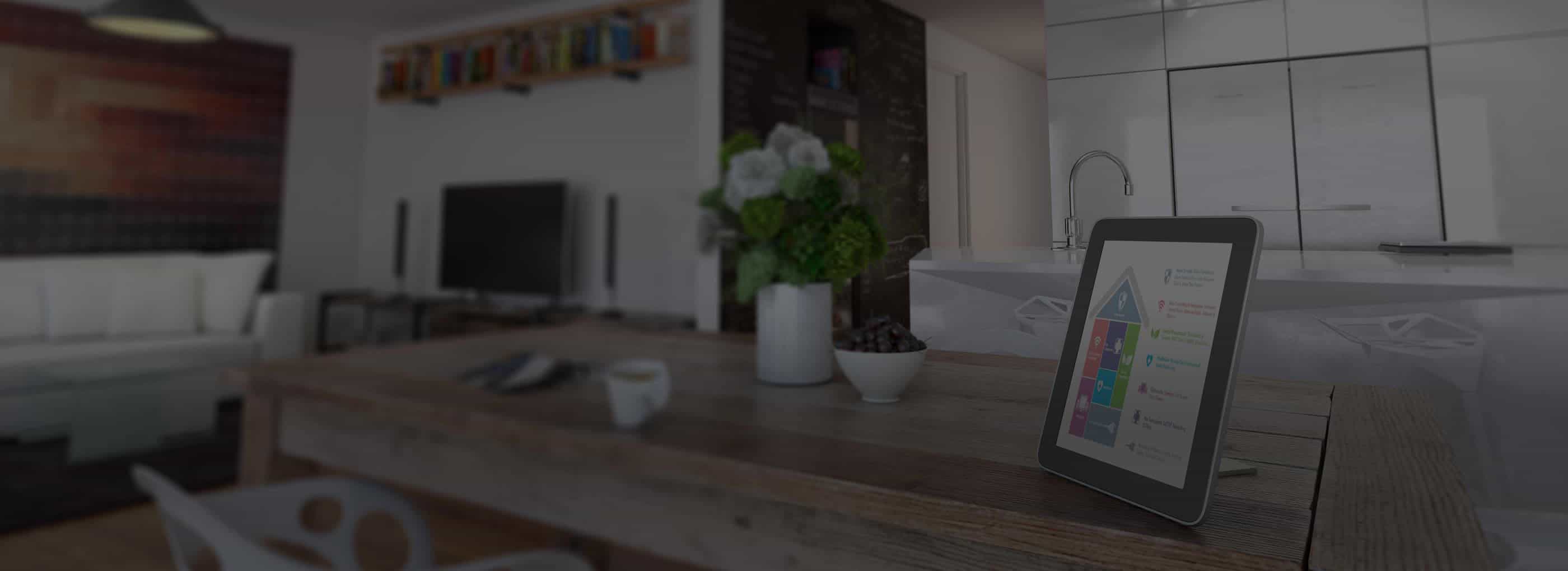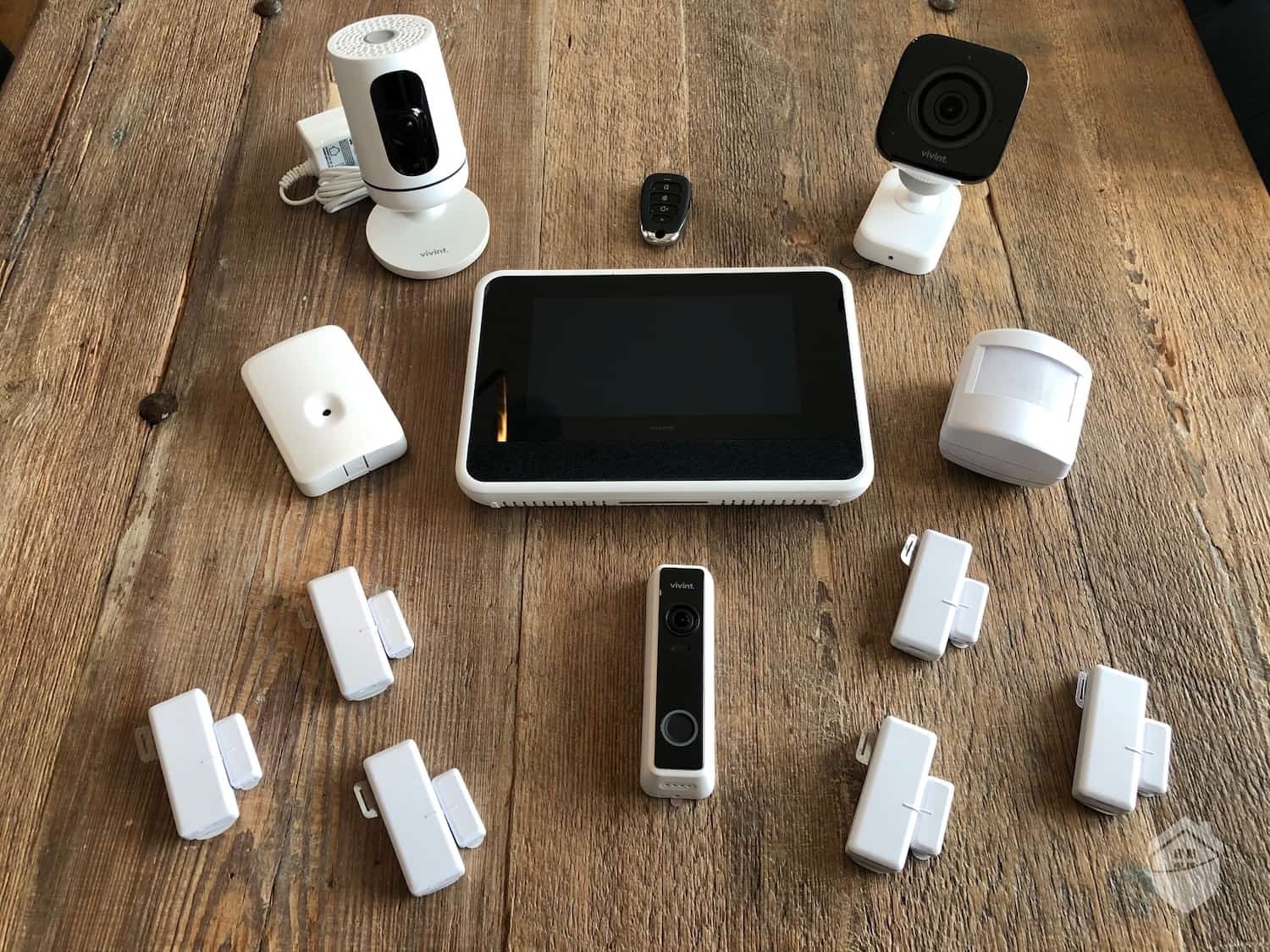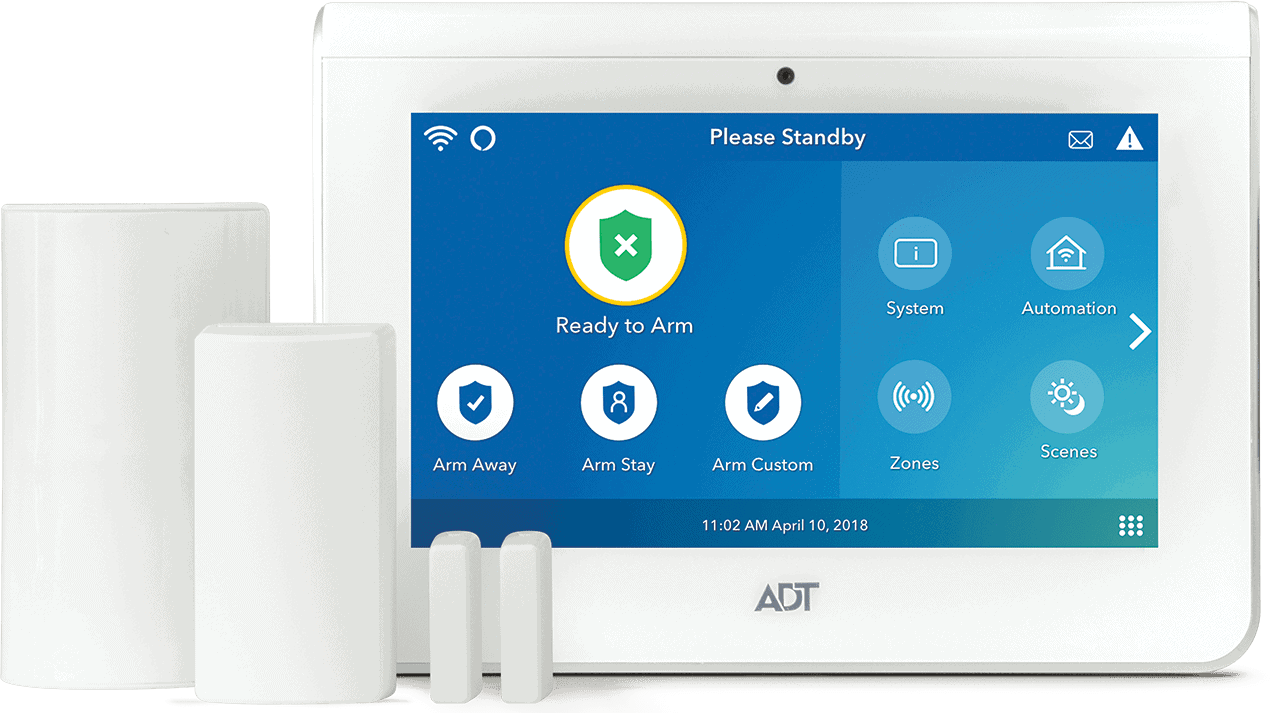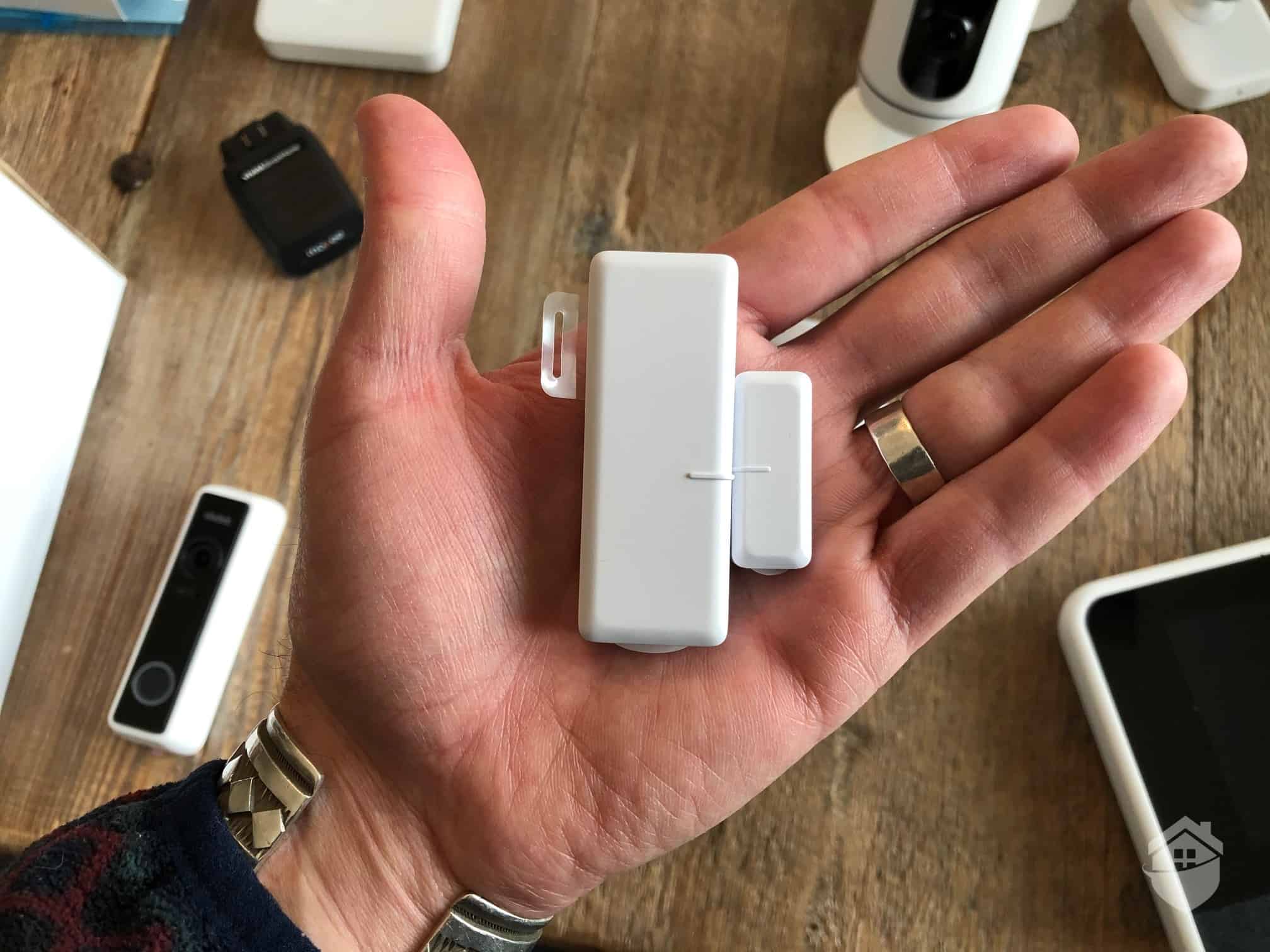When we consider the security threats we all face, we’re usually thinking about burglary or home invasion. Rarely does the kitchen sink show up on our list of dangers.
But it should be considered nonetheless.
Water leaks — especially those that go unnoticed for weeks or months — can cause far more damage than a robber stealing your laptop, and create more dangerous situations than a prowler sneaking onto your property.
So how can you protect against this often-overlooked threat? With technology, of course. Let’s take a look at water leak sensors, how they work, how much they cost, and where they should be installed to help keep your property and family safe.
What Are Water Leak Sensors?
As the name suggests, water leak sensors — also called water leak detectors and water alarm sensors — detect water where it shouldn’t be. Why would you need such a thing? Glad you asked.
In certain timelines, water can be an extremely destructive force. And while we’re not talking about the time it took the Colorado River to carve out the Grand Canyon, the drip in your basement pipe can do untold damage over time — rotting out structural elements, rusting metal, and creating an environment where mold can thrive.
FYI: Many homeowners insurance policies don’t protect against the damage caused by mold unless you’ve purchased specific mold insurance. It’s always best to check your policy before you need to know if you’re covered.
Enter water leak detectors. When used properly, these little puck-like devices will give you peace of mind that there isn’t a water leak just waiting to create massive headaches for you once it’s finally discovered. But how do they work, exactly?
How Do Water Leak Detectors Work?
While there are many different water leak sensors on the market, they all generally work in the same way. The device is placed in an area where a water leak has the potential to occur and will sound an alarm or send a notification to a smart device when water is detected.
Pro Tip: You don’t always know exactly where a water leak might occur, so consider purchasing a pack of multiple sensors that will allow you to extend your effective detection range.
How does it detect the water? By relying on H2O’s electrical conductivity. Similar to door alarm sensors and window alarm sensors, water leak sensors have two contacts that, when bridged by water, complete a circuit. They are generally battery operated, and most will last for years without having to change the battery out — just like your home’s smoke detectors (which you have plenty of, right?).
Pro Tip: Make sure you test your water alarm sensors often. While they can last for a long time on a single charge, a water alarm sensor with a dead battery isn’t doing you any good.
More advanced water leak detectors might come with onboard humidity and temperature sensors that can send alerts to your phone if atmospheric conditions reach dangerous thresholds. For example, if you live in a cold climate where the temperature regularly drops below freezing during the winter, you might be worried about pipes bursting. A smart water leak sensor will let you know if you should take preventative measures.
The most advanced water leak detectors are in-line systems that will monitor your home’s entire water delivery system and can shut off the water automatically if a serious problem is detected. Most folks don’t require this type of application, but if you’re running a server room or have environmentally sensitive antiques or valuables, you might consider this type of system. Keep in mind, though, that this will require expert installation.
Now that you understand the different types of water leak sensors and how they work, let’s talk about where they should be installed.
Where Should I Put my Water Alarm Sensor?
Every home is unique, and as such, the application of water alarm sensors will be determined by individual layouts and floor plans. However, there are a few places in any home that would benefit from water leak sensors. These include:
- Basements
- Bathrooms
- Under sinks
- Near water heaters
- Under refrigerators
- Near HVAC systems
- Under the washing machine
- Under dishwashers
Generally speaking, you want to place water alarm sensors anywhere water might accumulate, especially if it’s in an area of the house you rarely go to like basements and crawl spaces. Remember, sometimes it can be difficult to predict where water leaks might occur, so some rooms or spaces might require multiple sensors.
And with that in mind, let’s talk about one of the biggest considerations in any piece of security equipment for your home — the price.
How Much Do Water Leak Sensors Cost?
As always, the short answer is “it depends.” How many sensors will you need? What kind of sensors are you interested in? Will they be integrated into a smart home system, or will regular alarms suffice? Do you want entire home protection or just spots?
We know that answer doesn’t really help with budgeting, so we’ll offer this. The most inexpensive water detection sensors are usually between $15 to $20. Those are no-frills, detects-water-sounds-alarm sensors. If you’re looking for smart sensors, you’ll pay somewhere between $50 and $80 per sensor. You’ll also have notifications pushed to your mobile devices and might have some other bonus features like atmospheric condition measuring. And systems with automatic shut-offs cost $1,000 or more.
FYI: Looking to protect your home on a budget? Check out our guide to our favorite affordable home security systems. Keeping your home safe shouldn’t break the bank, and here you’ll find plenty of options for reasonable protection.
Are Water Leak Sensors Worth It?
“Worth it” is a pretty subjective term, but when you consider the return on investment, we’d argue that water leak sensors are absolutely worth it.
Consider how costly it is to repair water damage. Most of the time we’re talking about at least a couple hundred dollars, if not a couple thousand. If water damage is extensive and major repairs are needed, you might be looking at having to get your homeowners insurance involved. Then, when you consider the domino effect of water damage causing mold and the remediation efforts it takes to mitigate the damages caused, a $20 water sensor would seem like a pretty good investment to us.
Final Thoughts on Water Leak Sensors
Like we’ve said, water leak sensors aren’t usually part of the home security conversation, but in a sense, they should be. The simple fact is your home is way more likely to experience a busted water heater than a home invasion, so it makes sense to protect yourself from the biggest threats first, and then work your way out to properly manage risk.
With that in mind, once you purchase your water leak sensors, you might want to check our home security system buyers guide. There you’ll find plenty of information to keep your property safe from all sorts of threats.
Final Thoughts on Window Alarm Sensors
No home security system is perfect, but no home security system is complete without window alarm sensors — plain and simple.
They’re one of the lowest-cost pieces of equipment, but one of the most important in helping you bolster the security of your home. By making sure no one can come in without your knowing about it, you’re well on your way to having a complete and comprehensive home security solution.
Water Leak Sensor FAQs
- How do water leak sensors work?
Water leak sensors sound an alarm when they detect enough moisture to close a circuit between the device’s two contact points.
- Are water leak sensors effective?
If you purchase a quality water leak sensor and place it where a leak could potentially occur, yes, they are effective pieces of equipment.
- Are water leak sensors expensive?
Water leak sensors on the more affordable side of the spectrum will cost about $15 or $20, while smart sensors — ones that connect to your devices — will be more expensive.
- Do I need water leak sensors?
Water leak sensors can help take the guesswork out of preventative maintenance. When placed thoughtfully and strategically, water leak sensors will help remove worries that slow leaks and drips are doing untold damage to your home.
- Can water leak sensors malfunction?
Like any piece of electrical equipment, a water leak sensor can malfunction. However, if you stick to a regular testing schedule you won’t be caught off guard.





